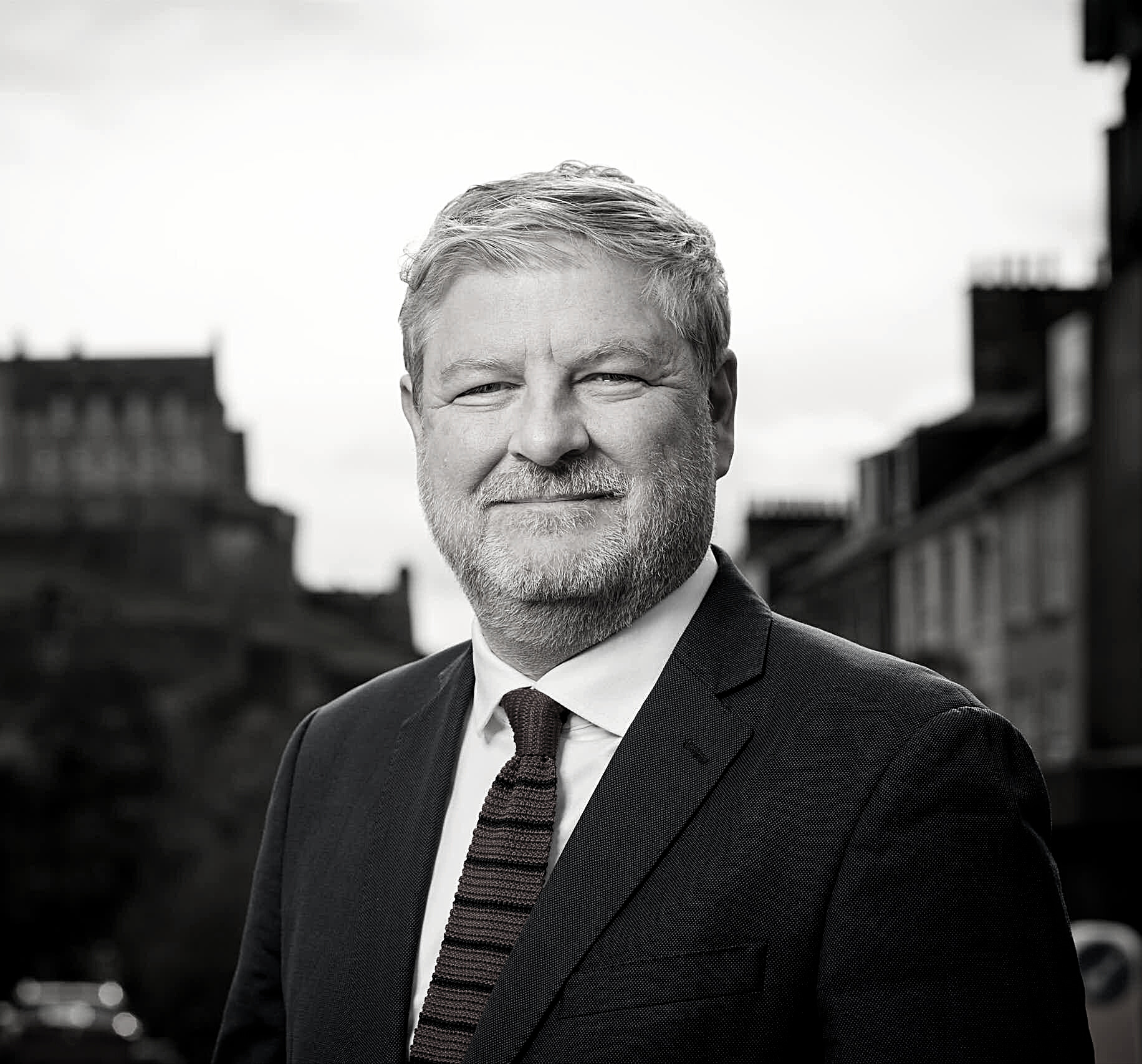'The noble capital of Vienna'
An excerpt from Angus Robertson's 'The Crossroads of Civilization: A History of Vienna'

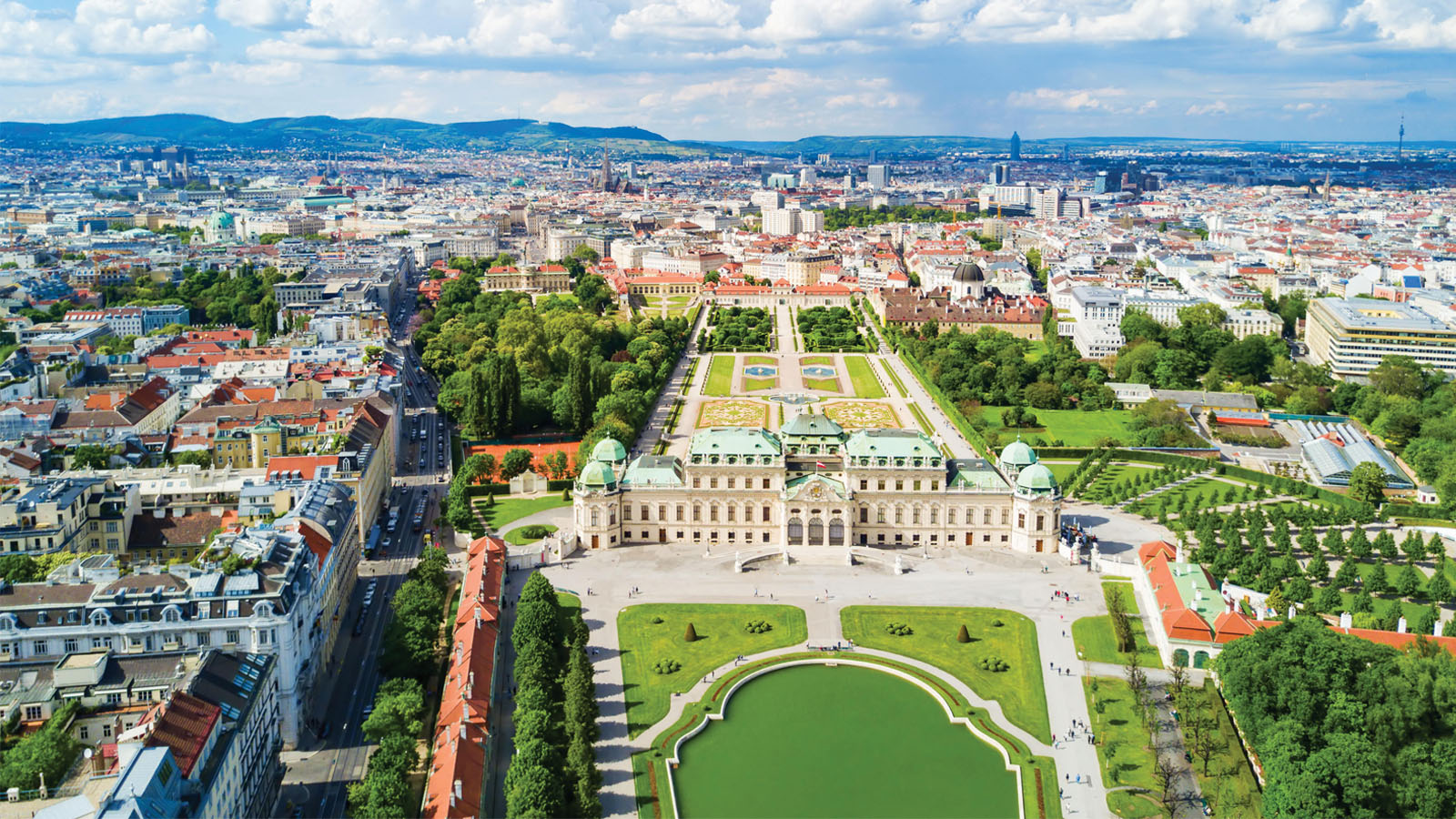
A free daily email with the biggest news stories of the day – and the best features from TheWeek.com
You are now subscribed
Your newsletter sign-up was successful
Vienna as an international capital is a city that has been a pivot for diplomacy, culture, intellectual thought, music, art, design, and architecture for hundreds of years.
Three high-profile funerals in the Austrian capital over the three last centuries illustrate the passing of different ages during this period. Charles-Joseph, 7th Prince de Ligne, died in December 1814 at the height of the Congress of Vienna, not long after famously saying: "The Congress does not move forward, it dances." One of the greatest characters of the age, he was a personal friend of the major figures of the 18th century, including the Austrian-born Queen Marie Antoinette of France, Tsarina Catherine the Great of Russia, King Frederick the Great of Prussia, and Austria's Emperor Joseph II, as well as the leading thinkers and authors of the age, such as Rousseau, Voltaire, and Goethe. Charles-Joseph's funeral on the Kahlenberg hill overlooking Vienna marked the passing of the ancien régime.
One century later, the funeral took place of Emperor Francis Joseph I, one of the longest-serving sovereigns anywhere, who reigned over Europe's second largest country from the 1848 revolutions to the First World War. In many ways his funeral in 1916 signaled the end of the Habsburg Monarchy, which had
The Week
Escape your echo chamber. Get the facts behind the news, plus analysis from multiple perspectives.

Sign up for The Week's Free Newsletters
From our morning news briefing to a weekly Good News Newsletter, get the best of The Week delivered directly to your inbox.
From our morning news briefing to a weekly Good News Newsletter, get the best of The Week delivered directly to your inbox.
ruled for more than 600 years. Within two years the Austro-Hungarian Empire collapsed in defeat and disintegrated into eight successor states.
Almost another century later was the funeral of Francis Joseph's grandnephew, Otto Habsburg, the last ever heir to the throne. In a packed St. Stephen's Cathedral in 2011, the old imperial anthem rang out and the Guard Battalion of the Austrian army followed the coffin in a procession through Vienna city center. As the successors to the old imperial Trabanten Lifeguards, they marched behind its flag, proudly wearing insignia with the black eagle of the Austrian Republic superimposed on the golden eagle of the Habsburg Empire.
The timing and symbolism of all three Vienna funerals tell their own story about the preceding centuries, and how this city has played a central role in the events that have marked these ages. Vienna has been at the crossroads of European civilizations, continental trading routes, cultural developments, and power relationships for more than two millennia. This began with the foundation of the Roman outpost of Vindobona, which developed over the centuries into the city we know today as the Austrian capital, especially since it became the city of residence for the up-and-coming Habsburg rulers in 1440.
For six centuries the blossoming of Vienna into a first-order international capital has been associated with the dynasty. "Habsburg history is in both the particular and the general sense not national but European history. From its earliest origins the family was entrusted with the task of resolving the tensions between west and east, north and south. In their successes and frustration, the Habsburgs laid up an enormous store of European experience — a parallel to the collections of treasures created by artists all the European nations and put together by the connoisseurs of the family during the course of the centuries."
A free daily email with the biggest news stories of the day – and the best features from TheWeek.com
By 1600 the Holy Roman Empire was firmly in the grip of the Habsburgs, ruling from the Hofburg palace within Vienna's city walls. The empire had the largest population in Europe; it was bigger than France, Russia, Spain, or England. With 50,000 people, Vienna itself still had a relatively small population compared to the likes of London, Paris, and Moscow, but it held a key position as the dynastic hub of central Europe. "In other countries, dynasties are episodes in the history of the people; in the Habsburg Empire peoples are a complication in the history of the dynasty. The Habsburg lands acquired in time a common culture, and to some extent, a common economic character: these were the creation, not the creators, of the dynasty. No other family has endured so long or left so deep a mark upon Europe: the Habsburgs were the greatest dynasty of modern history, and the history of Central Europe revolves round them, not the other way round."
Vienna was a melting pot of nationalities from across central Europe and beyond, with visitors struck by its polyglot population and its burgeoning cultural scene, which attracted the finest composers, performers, and artists from near and far. The city was also the Christian bulwark against two Turkish sieges, leading Catholic resistance to the Reformation and opposition to revolutionary and Napoleonic France. Bonaparte's foreign minister, Charles Talleyrand, stressed to Napoleon why Vienna's regional and international role was of such importance: "Your Majesty can now eliminate the Austrian monarchy or re-establish it. But this conglomeration of states must stay together. It is absolutely indispensable for the future well-being of the civilized world."
Over the course of 20 years of warfare, Austria provided the most consistent continental opposition against revolutionary and Napoleonic France. Despite numerous defeats across Germany, Bohemia, and Italy, the Habsburg forces continued to fight, handing Napoleon his first personal battlefield defeat at Aspern-Essling on the outskirts of Vienna. In the greatest battle before the First World War, an allied army under Austrian command took to the field at the Battle of Leipzig: Half a million men from across Europe took part in this Battle of the Nations, where Napoleon met his real Waterloo. It took the Congress of Vienna to re-establish peace and stability across the continent.
During the 19th century, Vienna quadrupled in size to become one of the largest cities in Europe; the city walls were replaced by a wide boulevard around the old town center, which became home to some of the grandest and finest buildings on the continent. While Austria's political relevance began to be eclipsed by the rising power of Prussia and a unified Germany, it remained one of the great powers. This ended with defeat and collapse in the First World War, a development that was even lamented by foes such as Winston Churchill, who described it as a "cardinal tragedy": "For centuries this surviving embodiment of the Holy Roman Empire had afforded a common life, with advantages in trade and security, to a large number of peoples none of whom in our own times had the strength or vitality to stand by themselves in the face of pressure from a revivified Germany or Russia . . . The noble capital of Vienna, the home of so much long-defended culture and tradition, the center of so many roads, rivers, and railways, was left stark and starving, like a great emporium in an impoverished district whose inhabitants have mostly departed."
Vienna's woes continued with the impoverishment of the 1920s, the Nazi Anschluss of the 1930s, and the Second World War. Only after the re-establishment of the Austrian Republic and the end of four-power occupation in 1955 did Vienna begin to fully prosper and reinvent itself as the international capital. On the front line of the Cold War, only miles from the Iron Curtain, Vienna became the preferred neutral meeting place for world leaders from West and East. Today it is home to the third global headquarters of the United Nations, the Organization for Security and Co-operation in Europe (OSCE), the International Atomic Energy Agency (IAEA), the OPEC oil cartel and a myriad of international organizations. In becoming a world center for diplomacy whilst retaining its status as a global city of culture, Vienna is, truly, the international capital.
This is an excerpt of The Crossroads of Civilization: A History of Vienna (Pegasus Books - August 2, 2022), available for purchase here or wherever books are sold.
Angus Robertson began his journalistic career with the Austrian Broadcasting Corporation (ORF) and also reported from Vienna for National Public Radio, the BBC, Ireland's RTÉ and other leading broadcasters. In 2016 he was awarded the Decoration of Honour for Services to the Republic of Austria, the country's highest national honor. From 2001 to 2017 he was a member of the UK House of Commons and in 2021 was elected as Member of the Scottish Parliament for Edinburgh Central. He is currently Cabinet Secretary for the Constitution, External Affairs and Culture in the Scottish government.
-
 5 blacked out cartoons about the Epstein file redactions
5 blacked out cartoons about the Epstein file redactionsCartoons Artists take on hidden identities, a censored presidential seal, and more
-
 How Democrats are turning DOJ lemons into partisan lemonade
How Democrats are turning DOJ lemons into partisan lemonadeTODAY’S BIG QUESTION As the Trump administration continues to try — and fail — at indicting its political enemies, Democratic lawmakers have begun seizing the moment for themselves
-
 ICE’s new targets post-Minnesota retreat
ICE’s new targets post-Minnesota retreatIn the Spotlight Several cities are reportedly on ICE’s list for immigration crackdowns
-
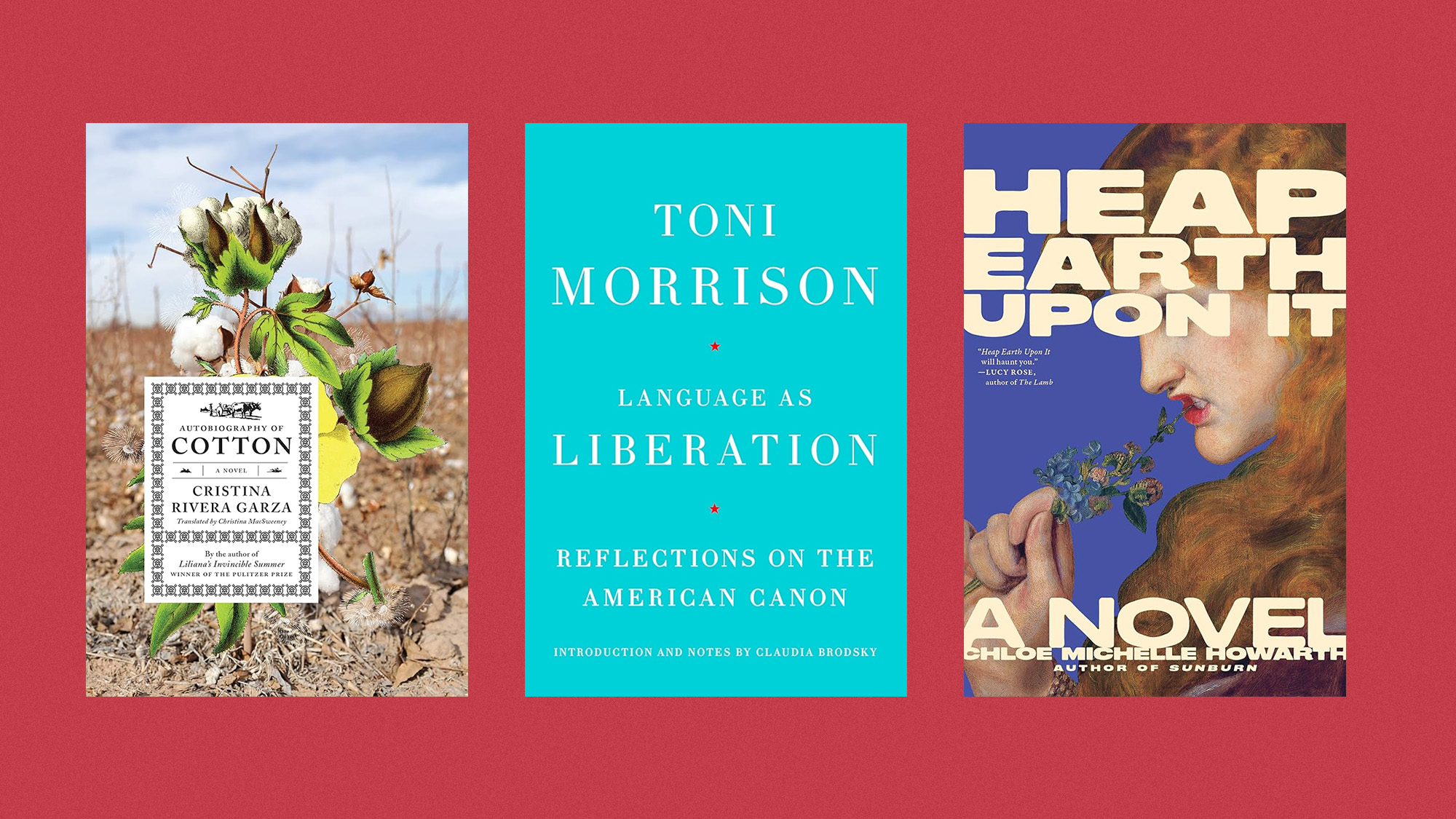 February’s books feature new Toni Morrison, a sapphic love tale and a criticism of Mexican history
February’s books feature new Toni Morrison, a sapphic love tale and a criticism of Mexican historyThe Week Recommends This month’s new releases include ‘Autobiography of Cotton’ by Cristina Rivera Garza, ‘Language as Liberation’ by Toni Morrison and ‘Heap Earth Upon It’ by Chloe Michelle Howarth
-
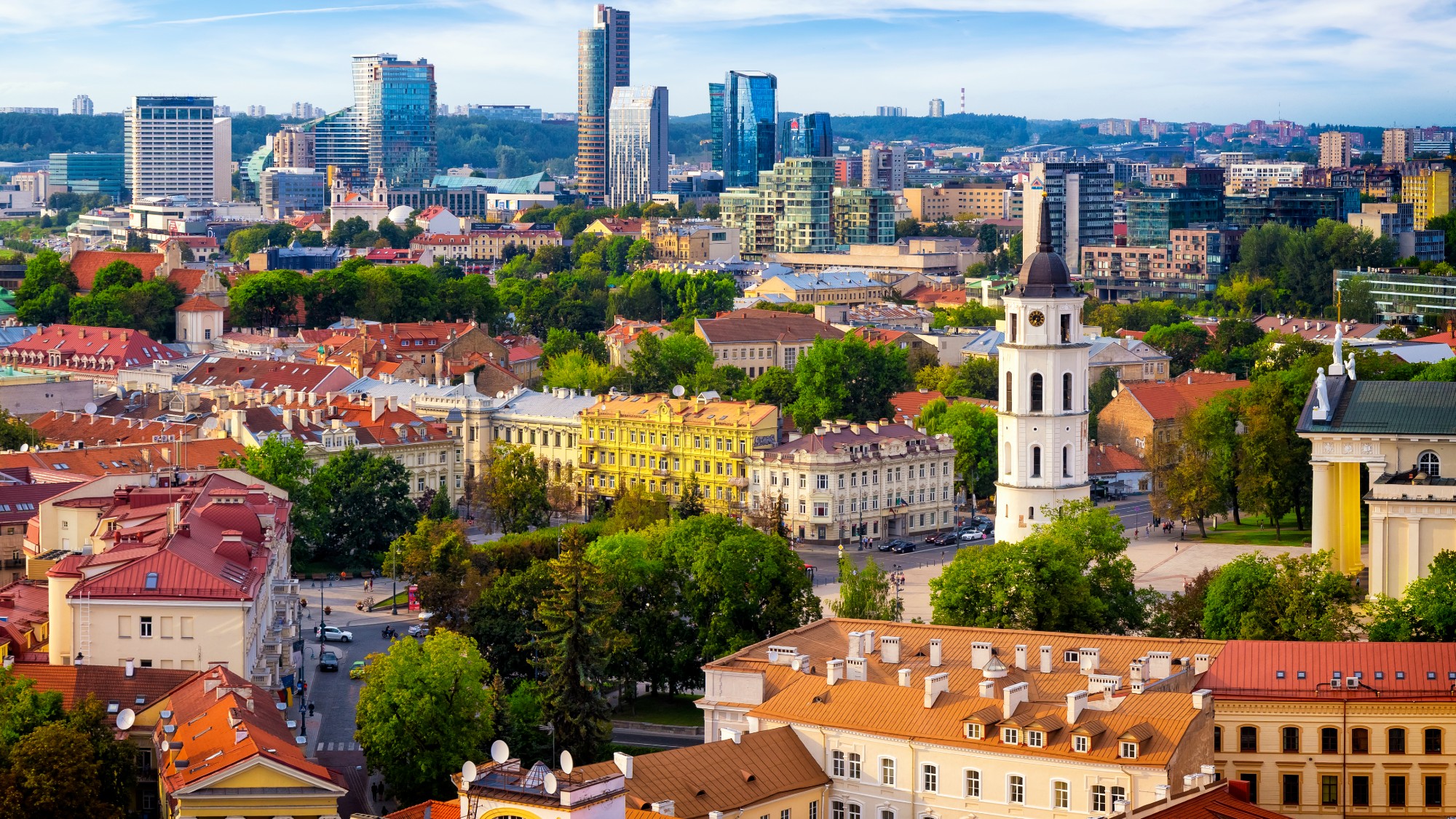 Exploring Vilnius, the green-minded Lithuanian capital with endless festivals, vibrant history and a whole lot of pink soup
Exploring Vilnius, the green-minded Lithuanian capital with endless festivals, vibrant history and a whole lot of pink soupThe Week Recommends The city offers the best of a European capital
-
 January’s books feature a revisioned classic, a homeschooler’s memoir and a provocative thriller dramedy
January’s books feature a revisioned classic, a homeschooler’s memoir and a provocative thriller dramedyThe Week Recommends This month’s new releases include ‘Call Me Ishmaelle’ by Xiaolu Guo, ‘Homeschooled: A Memoir’ by Stefan Merrill Block, ‘Anatomy of an Alibi’ by Ashley Elston and ‘Half His Age’ by Jennette McCurdy
-
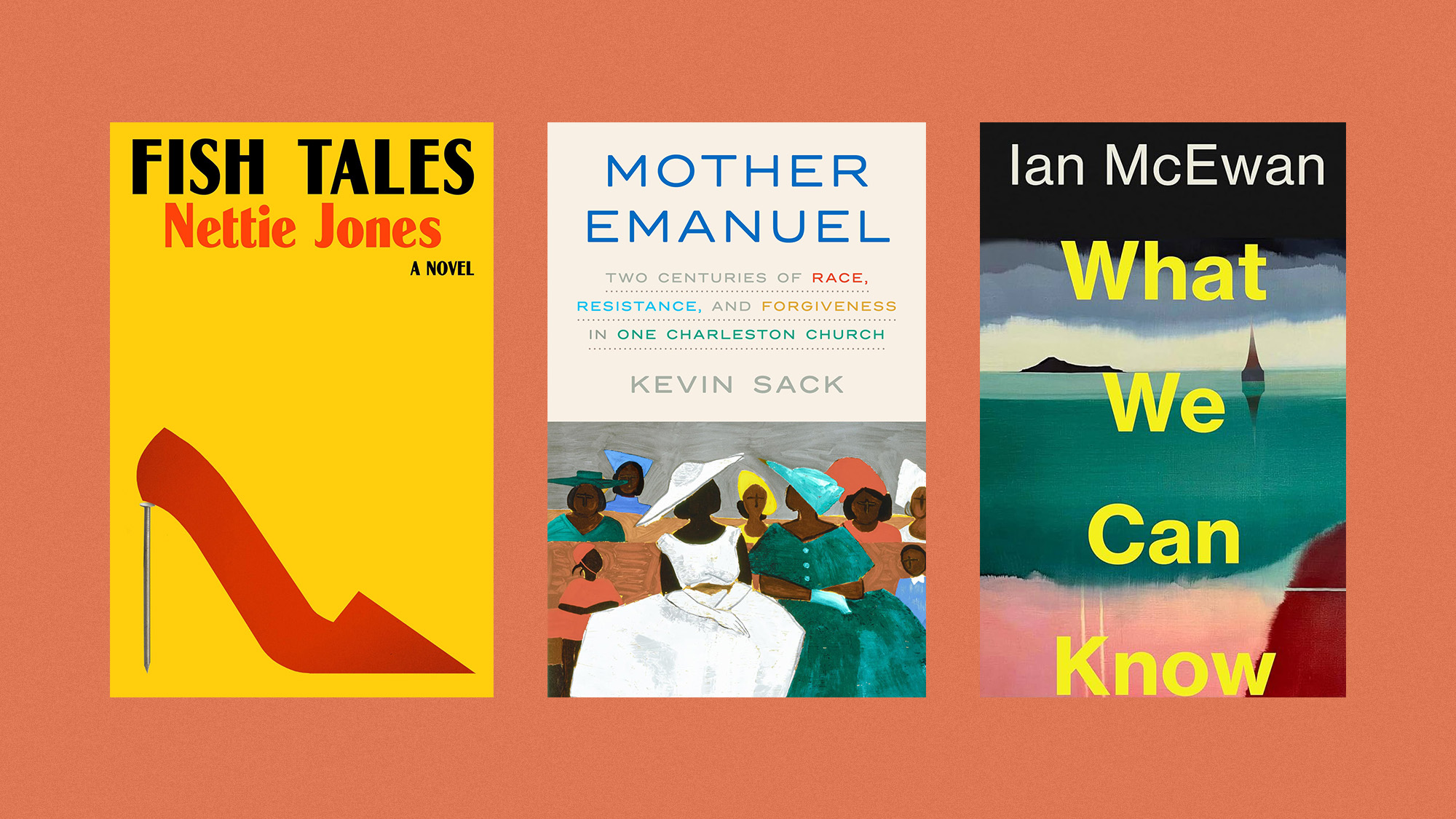 The best books of 2025
The best books of 2025The Week Recommends A deep dive into the site of a mass shooting, a new release from the author of ‘Atonement’ and more
-
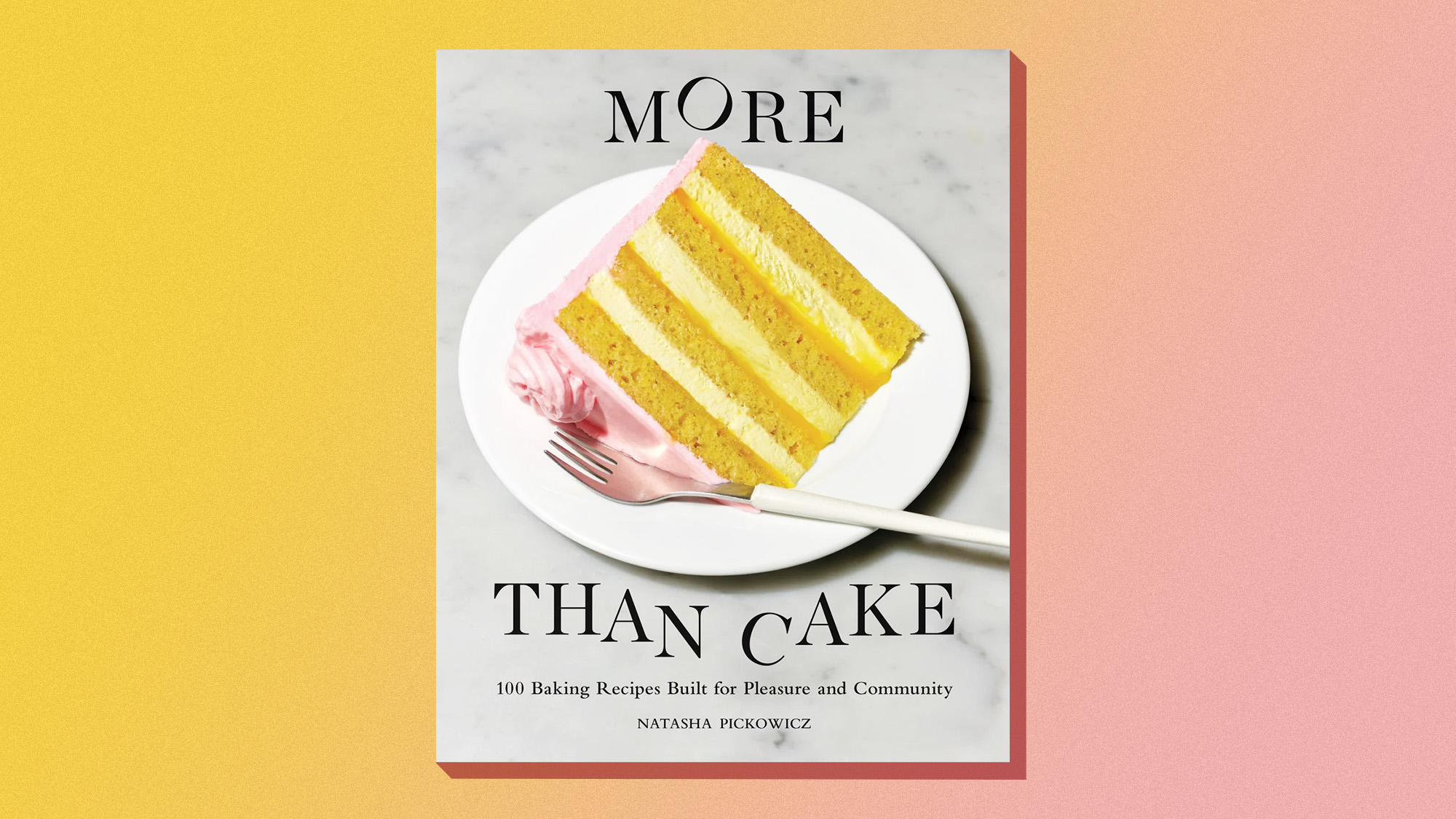 One great cookbook: Natasha Pickowicz’s ‘More Than Cake’
One great cookbook: Natasha Pickowicz’s ‘More Than Cake’the week recommends The power of pastry brought to inspired life
-
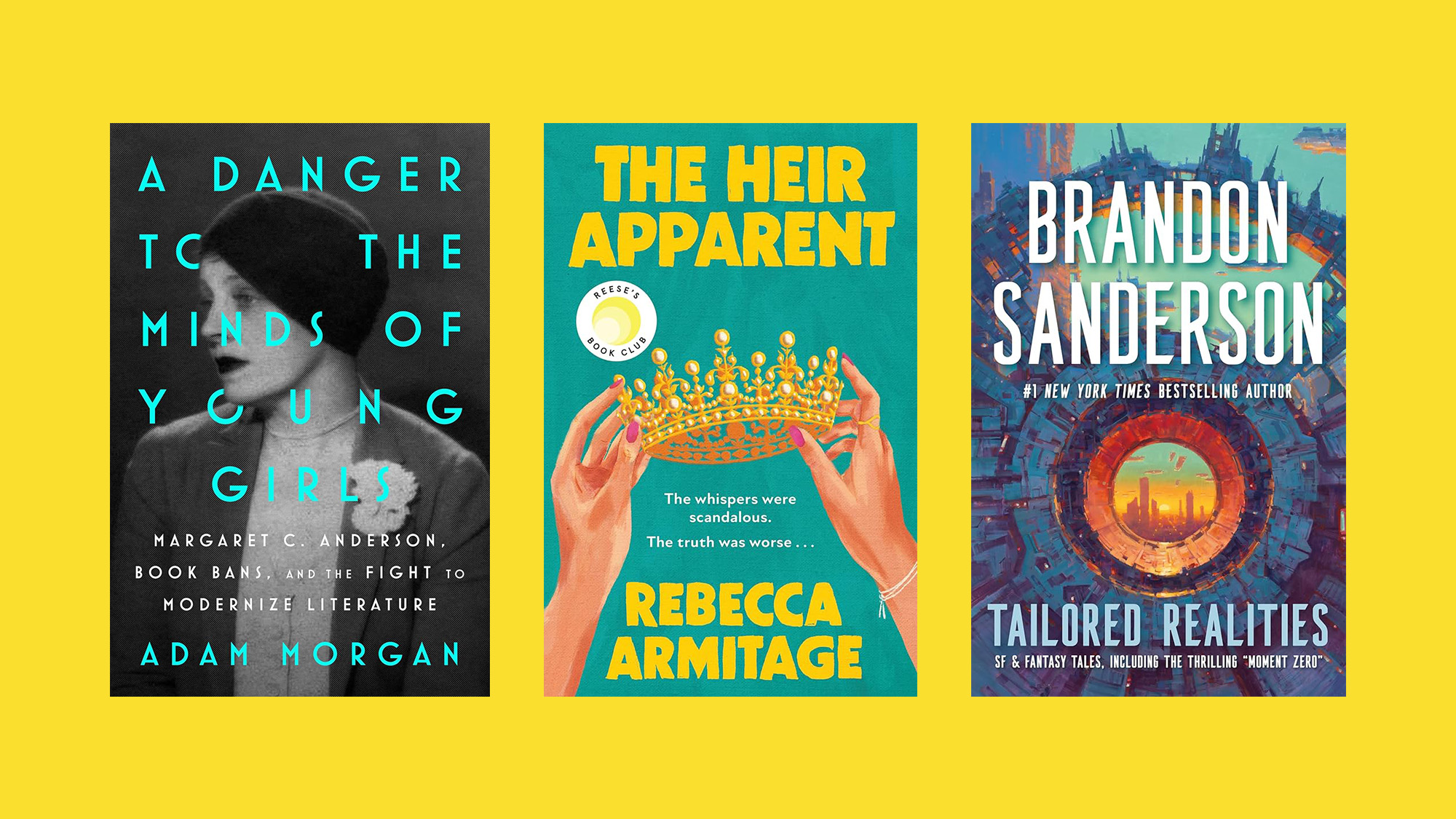 December’s books feature otherworldly tales, a literary icon’s life story and an adult royal romp
December’s books feature otherworldly tales, a literary icon’s life story and an adult royal rompThe Week Recommends This month's new releases include ‘The Heir Apparent’ by Rebecca Armitage and ‘Tailored Realities’ by Brandon Sanderson
-
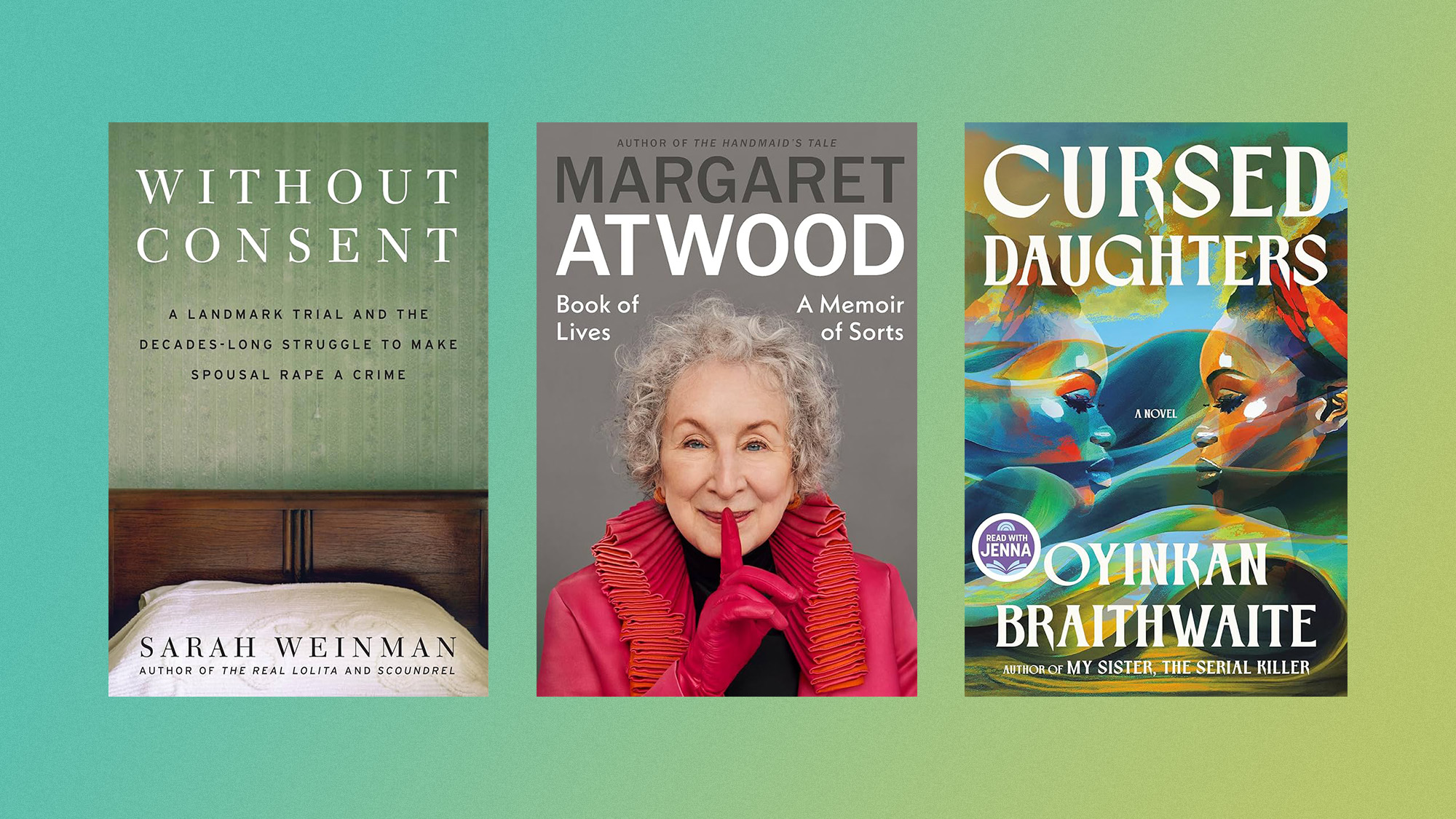 Margaret Atwood’s memoir, intergenerational trauma and the fight to make spousal rape a crime: Welcome to November books
Margaret Atwood’s memoir, intergenerational trauma and the fight to make spousal rape a crime: Welcome to November booksThe Week Recommends This month's new releases include ‘Book of Lives: A Memoir of Sorts’ by Margaret Atwood, ‘Cursed Daughters’ by Oyinkan Braithwaite and 'Without Consent' by Sarah Weinman
-
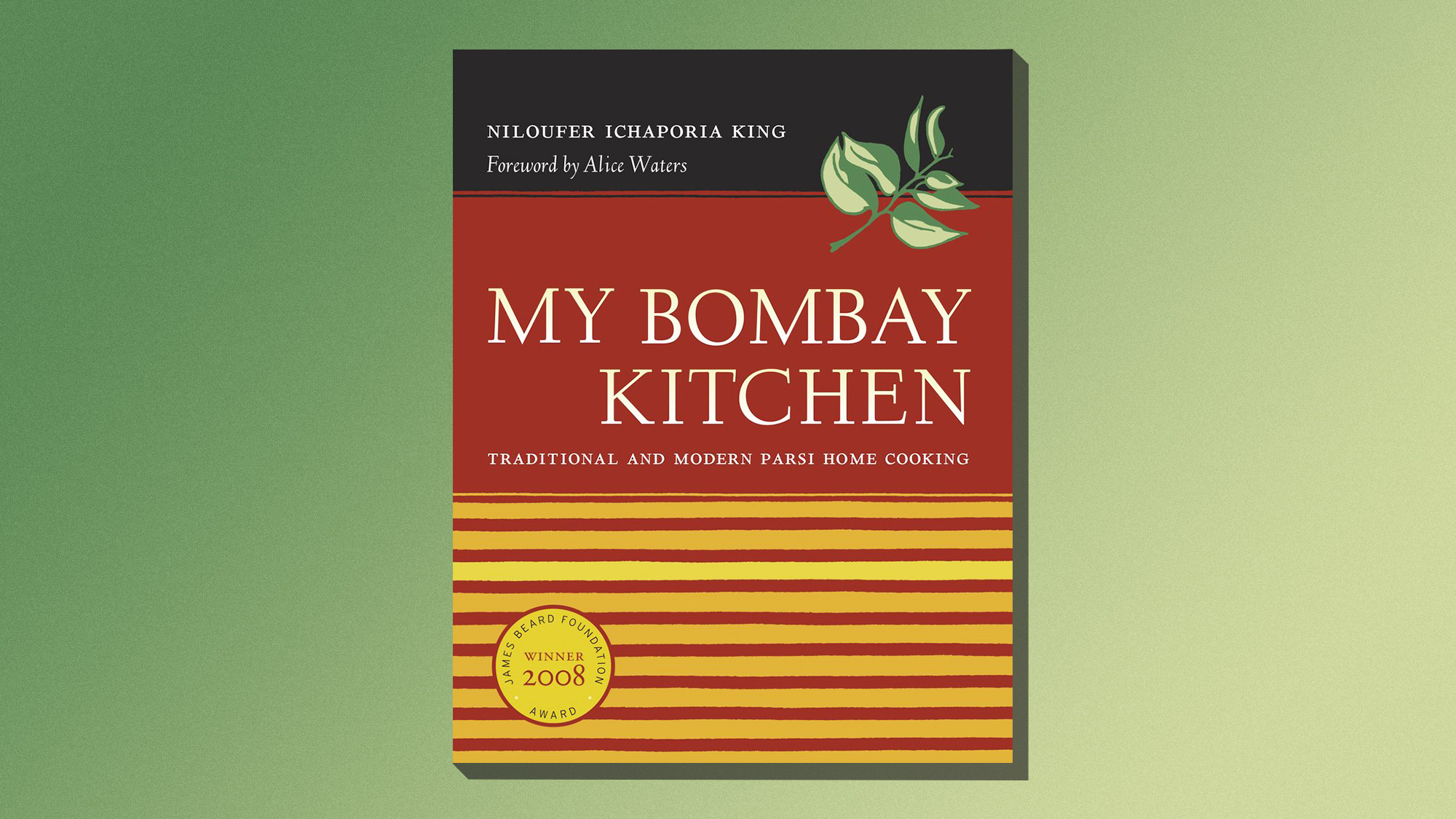 One great cookbook: Niloufer Ichaporia King’s ‘My Bombay Kitchen’
One great cookbook: Niloufer Ichaporia King’s ‘My Bombay Kitchen’The Week Recommends A personal, scholarly wander through a singular cuisine
